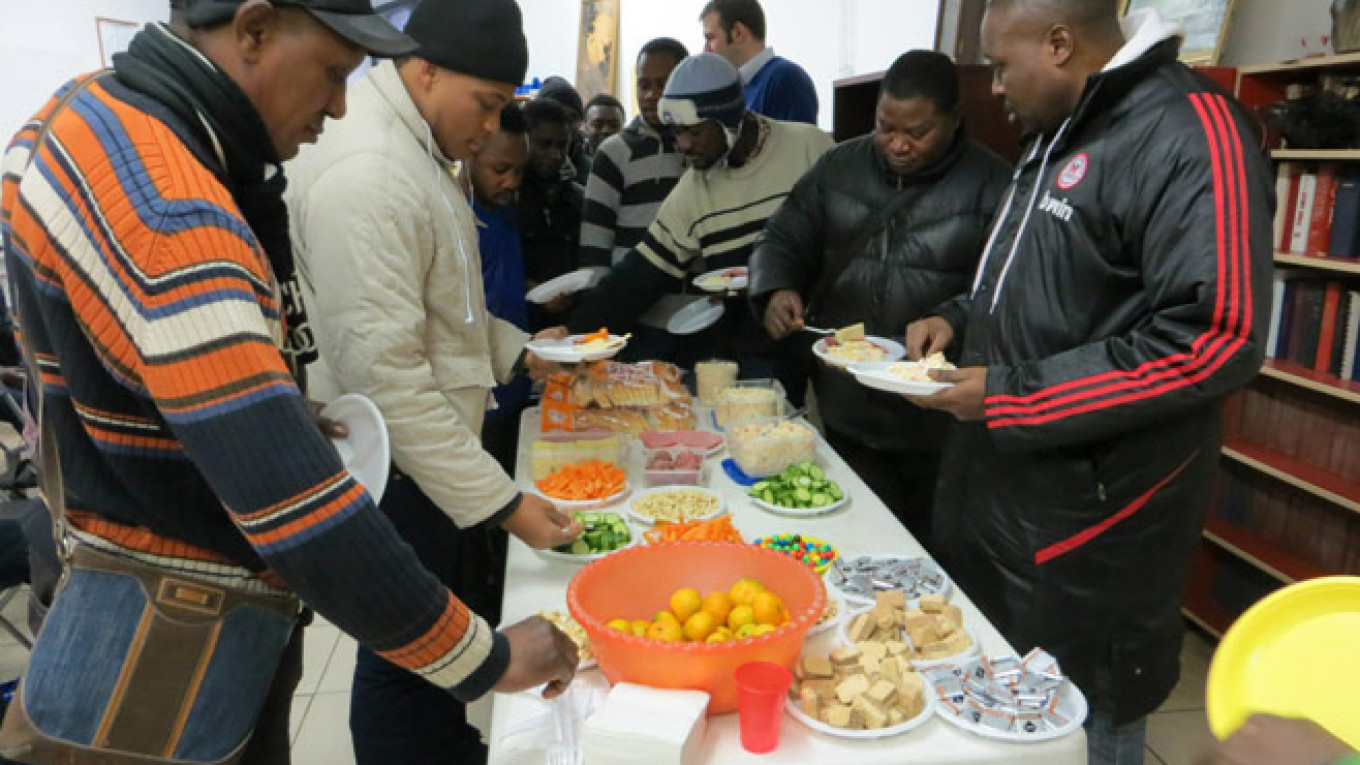Tucked away in the chaotic streets of Moscow's city center, the social services branch of Moscow Protestant Chaplaincy (MPC) provides simple, but vital services to the hundreds of African asylum seekers who come to Russia each year.
Imanni Burg, executive director of MPC Social Services says that she wishes the organization could do more.
"Sadly, we can't provide many of the services that would make a big difference in the lives of refugees, like stable housing and employment. Our most effective services are connecting refugees to language lessons, supporting people who have been attacked, and simply providing a safe space where refugees can support one another," Burg said.
According to the Moscow-based SOVA Centre for Information and Analysis, 19 people were killed in 25 regions of Russia in racially motivated attacks last year, while another 103 were injured. Ten of the non-fatal attacks were against "people with dark skin," although it is believed that the majority of cases are not reported and the true number is likely much higher.
This climate of fear is a major hurdle for African migrants, who are reluctant to seek help. MPC works almost exclusively by word of mouth, which means that many migrants who need their support remain unaware of the programs. Burg says that the lack of publicity is unfortunate, but necessary. ?
"We have to be cautious about what information we put out about our parish center because it could put people at even greater risk," Burg said.
According to statistics from Russia's Federal Migration Service (FMS), fewer than 50 nationals from African countries have been granted refugee status since the 1990s. Many others are waiting for their applications to be processed, but getting legal registration can feel like a never-ending bureaucratic process — one that many African migrants are ill-equipped to navigate.
"The FMS requirements are often difficult to fulfill. Refugees have to register themselves with the authorities very quickly, even when most of them arrive with a single bag, no friends or contacts, no ability to speak Russian and no idea of where they need to go," says Burg.
The extended wait and tenuous legal status adds to the difficulty Africans already have finding work.
"People will pay African refugees very little, because they know that no one else will pay them more," Burg said. "Many people have the idea that Africans and other immigrants are doing these menial jobs because they're uneducated, but often that's not the case — some people are doctors or engineers who just can't find any other work."
Burg is cautiously optimistic about the future, however. "I am glad to see more Russian volunteers getting involved. MPC has Russian people volunteering side-by-side with our African volunteers who are running programs — they may have never worked with a black person before. It changes their perceptions.
? "Each healthy baby whose mother we've supported through their pregnancy, each person who becomes more aware of racism because of our efforts, and each positive relationship built between a volunteer and a migrant feels like a win. Every day there are small victories."
Contact the author at [email protected]
A Message from The Moscow Times:
Dear readers,
We are facing unprecedented challenges. Russia's Prosecutor General's Office has designated The Moscow Times as an "undesirable" organization, criminalizing our work and putting our staff at risk of prosecution. This follows our earlier unjust labeling as a "foreign agent."
These actions are direct attempts to silence independent journalism in Russia. The authorities claim our work "discredits the decisions of the Russian leadership." We see things differently: we strive to provide accurate, unbiased reporting on Russia.
We, the journalists of The Moscow Times, refuse to be silenced. But to continue our work, we need your help.
Your support, no matter how small, makes a world of difference. If you can, please support us monthly starting from just $2. It's quick to set up, and every contribution makes a significant impact.
By supporting The Moscow Times, you're defending open, independent journalism in the face of repression. Thank you for standing with us.
Remind me later.


